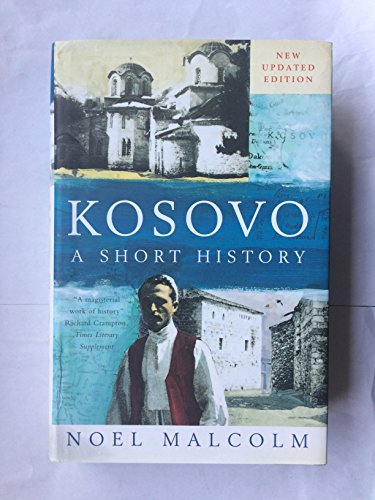
Kosovo: A Short History
von Malcolm, Noel
26,20 €
Einband: Gebundene Ausgabe
Seitenzahl: 492 Seiten
Erscheinungsdatum: 01.01.1970
gefunden bei Amazon Marketplace
Zum Shop
Beschreibung
Kosovo: A Short History
Kosovo: A Short History von Malcolm, Noel im Online-Buchhandel:
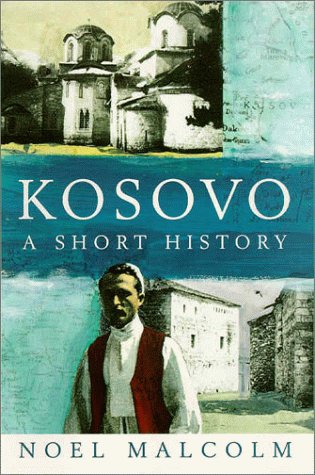
Kosovo: A Short History
von Noel Malcolm
50,01 €
gefunden bei AMZN_MP
Kosovo, a 55-mile-long plateau in southern Serbia bordering Albania and Macedonia, should by all rights...
Kosovo, a 55-mile-long plateau in southern Serbia bordering Albania and Macedonia, should by all rights be a historical and political backwater. A Bulgarian geographer who visited Kosovo during World War I remarked that it was "almost as unknown and inaccessible as a stretch of land in Central Africa." The observation would prove ironically fitting by the '90s, as Central Africa and Kosovo both became sites of widespread genocide, fueled by ethnic hatreds, of the deepest international significance. Noel Malcolm, a British historian and journalist who has written extensively about the Balkans (including a companion volume of sorts on Bosnia), provides an overview of Kosovo's long-standing cultural divisions in his "short history" (although, at more than 500 pages, a not so short book). Readers following the unfolding war in Kosovo through newspaper and television coverage may well ask why ethnic Albanians and Serbs are struggling so violently to command the small region. Kosovo, Malcolm explains, is the birthplace of Serbian nationalism; the defeat of Serbian forces there in 1389 by Turkish troops became emblematic of the fall of the Serbian empire, as it led to Turkish domination of the Balkans. Contemporary warriors of Serbia are, in Malcolm's eyes, evidently attempting to reverse the course of history by reclaiming the land from its Turkish conquerors--but in the absence of the Turks, they'll take it from the Albanians (the largest ethnic group among Kosovo's inhabitants) whose ancestors converted to Islam when the Turks ruled the region. Malcolm's lucid text shows again and again that the ethnic conflict in Kosovo is less a battle over bloodlines and religion than it is one over differing conceptions of national origins and history. "When ordinary Serbs learn to think more rationally and humanely about Kosovo, and more critically about some of their national myths," he concludes, "all the people of Kosovo and Serbia will benefit--not least the Serbs themselves." --Gregory McNamee
Verlag: New York Univ Pr
Zur Online-Buchhandlung von
AMZN_MP
AMZN_MP
Bewerte das Buch
- Habe ich gelesen
- Möchte ich noch lesen
- Lieblingsbücher
- Wunschliste
Weitere Bücher von Malcolm, Noel
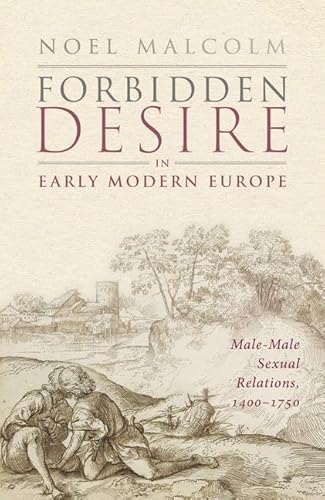
Forbidden Desire in Early Modern Europe: Male-Male Sexual Relations, 1400-1750
von Malcolm, Noel
gefunden bei Amazon Marketplace
ab 24,99 €
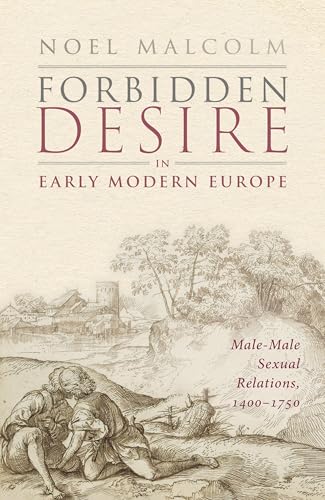
Forbidden Desire in Early Modern Europe: Male-Male Sexual Relations, 1400-1750
von Malcolm, Noel
gefunden bei Amazon
ab 24,99 €
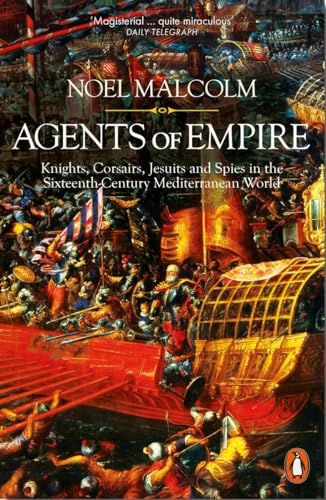
Agents of Empire: Knights, Corsairs, Jesuits and Spies in the Sixteenth-Century Mediterranean World
von Malcolm, Noel
gefunden bei Amazon Marketplace
ab 20,00 €